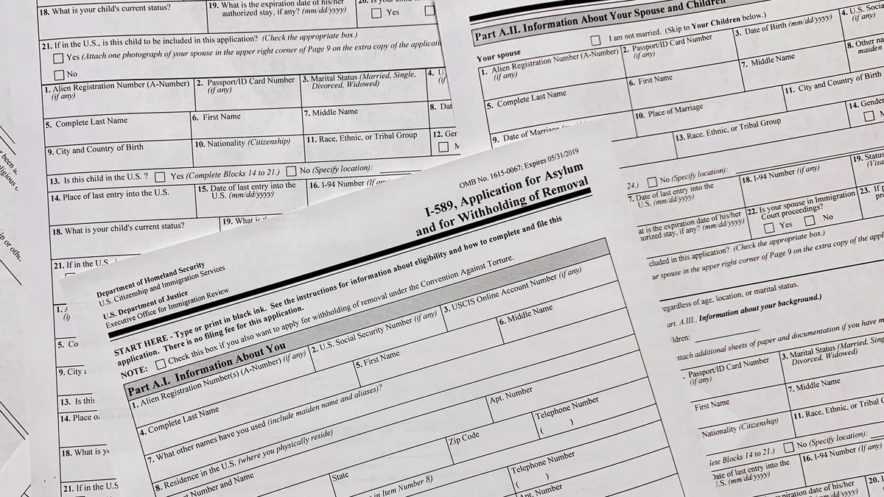When the United States signed the Universal Declaration of Human Rights in 1948, they agreed to take in people seeking asylum from persecution in their home country. Of course, not just anyone can enter the US and be granted asylum. Every year the US sets a cap on the number of asylees allowed in. In 2019, the cap was set at 30k. As of January 2019, it was estimated that there were 598,794 asylum cases pending. That means that only 5% of asylum seekers will be granted asylum.
Who can get asylum?
People who are in danger in their home country and who last entered the US within a year can file for asylum. If it’s been over a year since they entered the US, they may still be eligible if: their home country’s political climate changed in that time and they are now in danger, or if there were verifiable extraordinary circumstances preventing them from applying within the year. These exceptions are rarely given out.
The above process is considered an affirmative asylum process. A defensive asylum process is when a person being deported from the US applies for asylum. In the current backlog, about 42% of cases are defensive claims.
How do people apply for asylum?
In affirmative cases, an asylum seeker fills out a form and a few months later they have an interview with the Asylum Office. For this interview, the asylum seeker must provide their own interpreter. If they have an attorney, the attorney is welcome to attend the interview. A decision is typically made a few months after the interview. If rejected, there is no opportunity for appeal and the immigrant is still subject to the limitations of the visa they used to enter the country.
Nina, one of our clients, received asylum this way.
In defensive cases, the person being deported can ask a judge in immigration court for asylum. In this case, the Immigration Judge schedules a hearing to collect evidence. The evidence has to prove that the asylum seeker’s life would be in danger if they went back to their home country. Stories of persecution and violence are part of the application but the key points need to be verifiable with documentary evidence. Immigrants need to show that they have suffered at the hands of their government because of their identity as a member of a political or social group. Under the current administration, gang and domestic violence are rarely accepted as reasons to grant asylum.
Sometimes the Immigration Judge will make a decision at the end of the hearing, but usually, they need extra time to come to a decision.
What happens next?
If asylum is denied, the applicant can appeal to the Bureau of Immigration Appeals (BIA). If the BIA agrees with the ruling the appeal is rejected, but the asylee can try for asylum once more by sending an appeal to the U.S. Court of Appeals. If the U.S. Court of Appeals doesn’t agree with the ruling then it goes back to the Immigration Judge with notes. However, if they agree, then asylum seeker is out of options.
If asylum is granted, the person is allowed to live and work in the US for life, along with their spouse and any unmarried children under 21. A year after being granted asylum, they can apply for a Green Card, and later, a U.S. citizenship.
Every week we help clients with affirmative applications and we are frequently in immigration court helping our clients tell their stories (with evidence!). If you need help with asylum, come see us at one of our weekly clinics.
The Southwest Detroit Immigrant and Refugee Center provides free and low-cost legal services to people who need them most in the Detroit area, with a focus on recent immigrants and refugees.
We were founded in 2014 by Kevin Piecuch, our Executive Director and principal attorney, to help meet the great need for quality legal services in underserved communities. We believe that everyone deserves justice regardless of your country of origin, the color of your skin, or your ability to afford an attorney.
Donate to support justice for everyone
Volunteer to help serve our client communities
Visit one of our clinics if you need legal help

